- Saturday, 25 October 2025
We aim to bring down arrears to zero
Suryodaya Municipality, bordering India in Ilam district, is advanced in tourism, agriculture, animal farming and education. The municipality produces the highest amount of tea in the district and is known as the tea capital. The municipality is declared both a tourist city and a child-friendly city. Additionally, it stood first in terms of economic development across the country last year and was recognised as the best municipality in the Koshi Province. Rana Bahadur Rai is serving as the Mayor of the municipality for the second term. Our Ilam correspondent Prem Adhikari recently talked to Mayor Rai regarding the municipality’s development and good governance. Excerpt:
How well has the government’s recent budget addressed local levels?
The National Planning Commission has provided supplementary and special grants. They are not particularly satisfactory. We have not been able to receive grants from revenue sharing until now. Equalisation grants are decreasing. What remains is the conditional grant, which means that we have to perform the tasks of the federal government at the local level. To institutionalise federalism and ensure the rights of all three tiers of government, the equalisation grant should be increased, but it does not appear to be increasing.
As we have reached the end of the fiscal year, what is the status of the municipality’s development progress?
All our municipality's works are going well. The municipality has advanced works to achieve sustainable development goals and prepare to localise them. The laws made by local levels such as the medium-term expenditure framework, periodic plans and sustainable development goals are well-aligned. We aim to reduce arrears to zero per cent from our current status which is less than 0.5 per cent. In terms of physical infrastructure, we have focused on building roads which can be operated year-round. We have prepared a 28-year sustainable road construction plan and are working accordingly.
What steps were taken to make Suryodaya Municipality known domestically and even internationally?
Firstly, the municipality became the best municipality in terms of economic development across the country through good governance. So far, representatives from 256 municipalities across the country have visited to observe our good practices, promoting the municipality domestically.
Meanwhile, the Remi Project is being operated here and the head office of the Small Irrigation Program (SIP) is also here. Many programmes in collaboration with donor agencies are conducted here. Various ambassadors from different countries visit our municipality frequently. Their cooperation has now made this municipality known worldwide. Additionally, many projects have selected the municipality to represent the country internationally recognising its work and good practices.
How is federalism being implemented?
It seems like the federal government does not want to give authority to local levels. Koshi Province has introduced the Local Service Formation and Operation Act. The Act states that the provincial government would appoint chief administrative officers at the local levels but until today the federal government has been appointing chief administrative officers. Meanwhile, federal education policies are not clear. The same goes for health and employees. Laws have been made but not implemented.
What should be done to improve coordination and relations between the three tiers of government?
Although policy committees have been formed, they are not active. The province has been allocating the budget at their will without discussing it with municipality chiefs, deputy chiefs and chief administrative officers despite having provisions for such discussions. Even equalisation grants passed by the House of Representatives are being cancelled. We are open for cooperation and coordination but it has been hindered due to the frequent government changes at the provincial and central levels.
How will this municipality work towards achieving sustainable development goals?
We have focused on three things: the medium-term expenditure framework, periodic plans and reviewing our position on sustainable development goals. Everyone should pay attention to these aspects and localise the sustainable development goals. Plans to improve the economic situation should be made and implemented by all.
Suryodaya Municipality is known as the tea capital. What are the main challenges seen in the tea sector?
We have not been able to make our tea organic. The inability to produce quality tea is the core problem. Farmers and businesses need to focus on the quality of tea while implementing the municipality’s tea guidelines. Raising awareness can solve the problems in the tea sector.
Antu and Kanyam have already become tourist hubs. What are the future goals for the tourism sector?
The provincial government has declared the Suryodaya Municipality a tourist city. However, a clear explanation of this has not been provided. There is still no strategy on what it means to be a tourist city and what actions to take. After the beautification of Antu and Kanyam, work is now underway on a glass bridge and a 12-kilometer cycling track. We plan to continue developing infrastructure while preserving natural resources.
What is being done in the education sector?
We plan to emphasise technical education by integrating it with technology, business, skills and vocation. We have implemented ‘12 months, 12 programmes’ and "Education for Daughters and Daughters-in-law." A Science Innovation Centre is being constructed at Fikkal High School with a budget of Rs. 50 million and an Agriculture Innovation Centre in Karfok High School. We plan to improve the quality of community schools by focusing on technology.
How did you feel after reading this news?



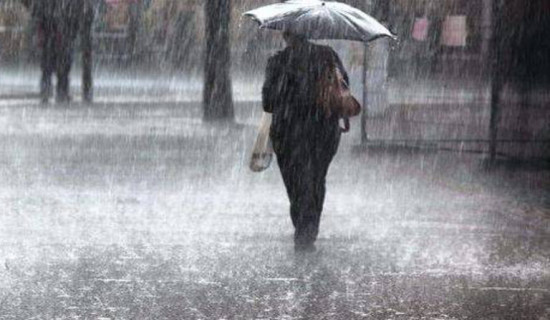
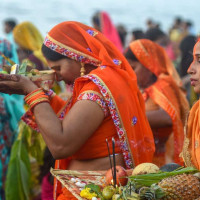
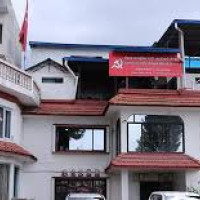
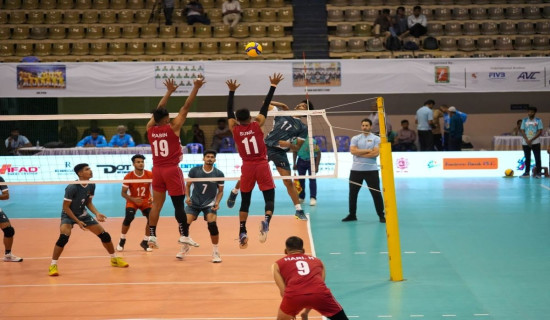
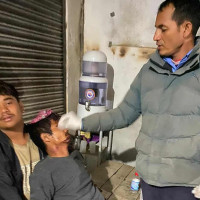
-square-thumb.jpg)







